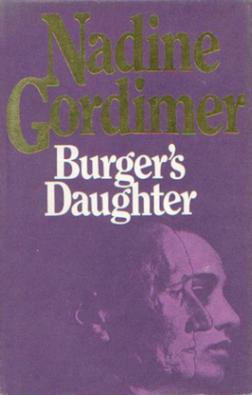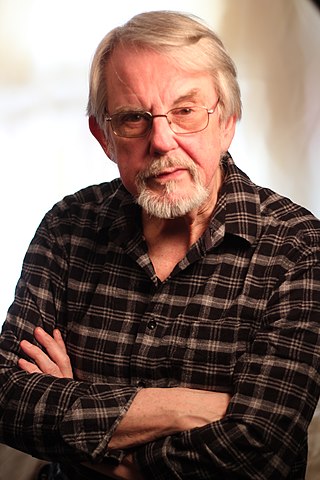Related Research Articles

Gloria Jean Watkins, better known by her pen name bell hooks, was an American author, theorist, educator, and social critic who was a Distinguished Professor in Residence at Berea College. She is best known for her writings on race, feminism, and class. The focus of hooks' writing was to explore the intersectionality of race, capitalism, and gender, and what she described as their ability to produce and perpetuate systems of oppression and class domination. She published around 40 books, including works that ranged from essays, poetry, and children's books. She published numerous scholarly articles, appeared in documentary films, and participated in public lectures. Her work addressed love, race, class, gender, art, history, sexuality, mass media, and feminism.
Ama Ata Aidoo, néeChristina Ama Aidoo is a Ghanaian author, poet, playwright and academic. She was the Minister of Education under the Jerry Rawlings administration. In 2000, she established the Mbaasem Foundation to promote and support the work of African women writers.
Athol Fugard OIS HonFRSL, is a South African playwright, novelist, actor, and director widely regarded as South Africa's greatest playwright. He is best known for his political and penetrating plays opposing the system of apartheid and for the 2005 Oscar-winning film of his novel Tsotsi, directed by Gavin Hood.

Fatima Meer was a South African writer, academic, screenwriter, and prominent anti-apartheid activist.

Patricia Hill Collins is an American academic specializing in race, class, and gender. She is a distinguished university professor of sociology emerita at the University of Maryland, College Park. She is also the former head of the Department of African-American Studies at the University of Cincinnati, and a past president of the American Sociological Association (ASA). Collins was the 100th president of the ASA and the first African-American woman to hold this position.

Langa is a township in Cape Town, South Africa. Its name in Xhosa means "sun". The township was initially built in phases before being formally opened in 1927. It was developed as a result of South Africa's 1923 Urban Areas Act, which was designed to force Africans to move from their homes into segregated locations. Similar to Nyanga, Langa is one of the many areas in South Africa that were designated for Black Africans before the apartheid era. It is the oldest of such suburbs in Cape Town and was the location of much resistance to apartheid.

Nyanga is a township in the Western Cape, South Africa. Its name in Xhosa means "moon" and it is one of the oldest black townships in Cape Town. It was established as a result of the migrant labour system. In 1948 black migrants were forced to settle in Nyanga as Langa had become too small. Nyanga was one of the poorest places in Cape Town and is still is one of the most dangerous parts of Cape Town. In 2001 its unemployment rate was estimated at being approximately 56% and HIV/AIDS is a huge community issue.

Burger's Daughter is a political and historical novel by the South African Nobel Prize in Literature-winner Nadine Gordimer, first published in the United Kingdom in June 1979 by Jonathan Cape. The book was expected to be banned in South Africa, and a month after publication in London the import and sale of the book in South Africa was prohibited by the Publications Control Board. Three months later, the Publications Appeal Board overturned the banning and the restrictions were lifted.
Gavin Jantjes is a South African painter, curator, writer and lecturer.

Pumla Gobodo-Madikizela is the Research Chair in Studies in Historical Trauma and Transformation at Stellenbosch University in South Africa. She graduated from Fort Hare University with a bachelor's degree and an Honours degree in psychology. She obtained her master's degree in Clinical Psychology at Rhodes University. She received her PhD in psychology from the University of Cape Town. Her doctoral thesis, entitled "Legacies of violence: An in-depth analysis of two case studies based on interviews with perpetrators of a 'necklace' murder and with Eugene de Kock", offers a perspective that integrates psychoanalytic and social psychological concepts to understand extreme forms of violence committed during the apartheid era. Her main interests are traumatic memories in the aftermath of political conflict, post-conflict reconciliation, empathy, forgiveness, psychoanalysis and intersubjectivity. She served on the Truth and Reconciliation Commission (TRC). She currently works at the University of the Free State in Bloemfontein as a senior research professor.
Martin Legassick (1940–2016) was a South African historian and Marxist activist. He died on 1 March 2016 after a battle with cancer. He was one of the central figures in the "revisionist" school of South African historiography that, drawing on Marxism, revolutionised the study of the social formation of Apartheid by highlighting the importance of political economy, class contradictions and imperialism. He was also a key figure in the independent left in South Africa from the 1970s, and a critic, from the left, of many of the analytical and strategic positions taken by the African National Congress and the South African Communist Party, as well as their understanding of South African history. The author of numerous books, mainly on the history of colonialism and capitalism, he collected many of his key political writings in his 2007 book Towards Socialist Democracy.
The Space Theatre was a fringe theatre in Cape Town, South Africa which was active in the 1970s. It re-opened in late 2008.
Mandla Langa is a South African poet, short-story writer, novelist, and cultural activist. He grew up in KwaMashu township of Kwazulu Natal. His novel The Lost Colours of the Chameleon won the 2009 Commonwealth Writers' Prize . Langa enrolled for a degree in English and Philosophy at the University of Fort Hare, but was expelled in 1973 as a result of his involvement in the activities of the South African Student Organisation. In 1976, he went into exile and has lived in different countries of Southern Africa as well as in Hungary and the United Kingdom.
The following is a timeline of the history of Cape Town in the Western Cape province of South Africa.
Elizabeth Sneddon (1907–2005) was a South African speech and drama teacher, theatrical director and academic.
Nomhle Nkonyeni was a South African actress who has appeared in television series such as Mzansi, Tsha Tsha and the 2007 mini-series Society, as well as feature films such as Of Good Report (2013).

Brian Astbury was a South African photographer, theatre director, acting and writing teacher, and founder of The Space Theatre in Cape Town, South Africa.
Sa'diyya Shaikh is a South African scholar of Islam and feminist theory. She is an associate professor of religion at the University of Cape Town. Shaikh studies Sufism in relation to feminism and feminist theory. Shaikh is known for work on gender in Islam and 'Ibn Arabi.
Fatima Seedat is a South African feminist, Islamic scholar and women's rights activist. She is known for her scholarly work on gender and Islamic law, and Islam and feminism.
Carole Yvonne Johnson is an African American contemporary dancer and choreographer, known for her role in the establishment of the National Aboriginal Islander Skills Development Association (NAISDA), and as co-founder of Bangarra Dance Theatre in Australia. Early in her career she became a lead dancer in the Eleo Pomare Dance Company, and Pomare had a profound influence on her dancing style.
References
- ↑ Flockemann, Miki; Solberg, Rolf (2015). Middeke, Martin; Schnierer, Peter Paul (eds.). The Methuen Drama Guide to Contemporary South African Theatre. Bloomsbury Academic. pp. 293–310. ISBN 978-1-4081-7670-2.
- ↑ Stephen Gray, 'The Theatre of Fatima Dike', English Academic Review, Vol. 2, Issue 1 (1984), pp.55-60.
- 1 2 Flockmann, Miki (1999). "On Not Giving Up: An Interview with Fatima Dike". In Goodman, Lizbeth (ed.). Contemporary Theatre Review: Women, Politics and Performance in South African Theatre Today. Routledge. pp. 17–26. ISBN 978-1-135-29884-5.
- ↑ Stephen Gray, 'An Interview With Fatima Dike', Callaloo, No. 8/10 (Feb. - Oct. 1980), pp.157-164.
- 1 2 3 4 Kathy Perkins (2006). "Fatima Dike". Black South African Women: An Anthology of Plays. Routledge. pp. 39–41. ISBN 978-1-134-67358-2.